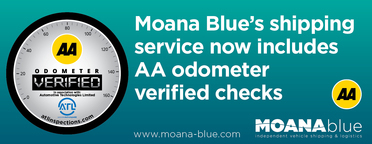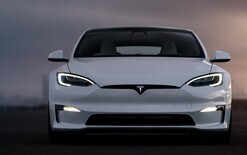Unknowns remain on rebates

The Motor Industry Association (MIA) has been seeking more information from the government about the clean-car rebates that start on July 1.
The programme means discounts for new battery electric vehicles (BEVs) and plug-in hybrids (PHEVs) – of $8,625 and $5,750 respectively – are available until the end of the year.
Used vehicles will attract rates of $3,450 for BEVs and $2,300 for PHEVs over the same timescale before a full feebate scheme starts in January 2022.
David Crawford, chief executive of the MIA, says: “We are still waiting on clarification of eligibility criteria for vehicles purchased by distributors for staff use, as demonstrators, launch cars and the like.
“We have, however, received clarification around price, which is the transaction price on the day. The MIA strongly supports this approach.”
That said, the association remains “nervous” about the way the clean-car discount scheme is being promoted.
“Creating lists of so-called ‘eligible’ models is fraught due to the price being the transaction price, not the recommended retail price [RRP],” Crawford told Autofile Online.
“Distributors will rightfully feel annoyed if vehicles, albeit with a RRP above $80,000, do not appear on a list. The transaction price might well be below $80,000 on the day.
“But from the public’s point of view, the news media seems to be doing a pretty good job on raising awareness of the discounts.”
To be eligible for rebates, PHEVs and BEVs must have a safety rating of at least three stars and cost less than $80,000, including GST and on-road costs.
The MIA is now seeking clarification from the Ministry of Transport about what could be construed as double-dipping by government departments in respect to such fleet purchases.
Crawford, pictured, explains: “In the budget, monies were set aside for government departments to increase their department vote, or budget, to buy low-emission vehicles. On top of that, they can also apply for the rebate.
“This is a policy change from the previous government. Our view is that it should be one or the other, but not both.”
As for the government’s announcement of June 13 on interim discounts before the full-clean car discount programme gets under way at the start of 2022, it has created a lot of interest in BEVs and PHEVs “as we knew it would”.
Crawford adds: “Generously, the government has allowed dealers who have registered a BEV or PHEV, but not yet delivered it, to deregister and reregister it come July 1 so the owner can claim the discount.
“The three weeks from announcement to the rebate coming into effect is manageable. A month or longer would have been unfortunate because cash flow would have become an issue.
“Overall, the clean-car discount is welcomed, but there is some confusion on the mechanics of which vehicles are eligible.”





